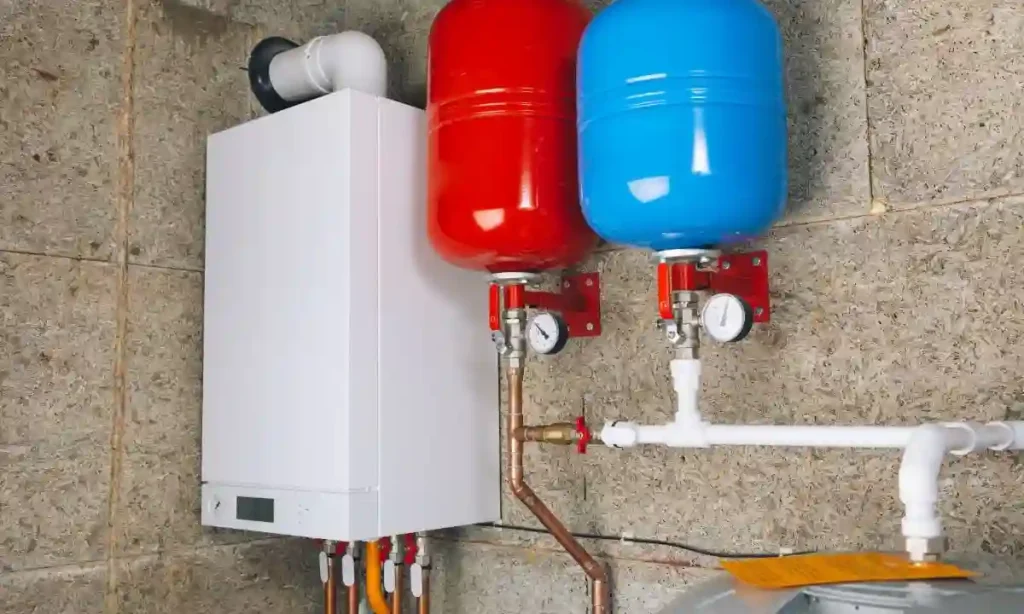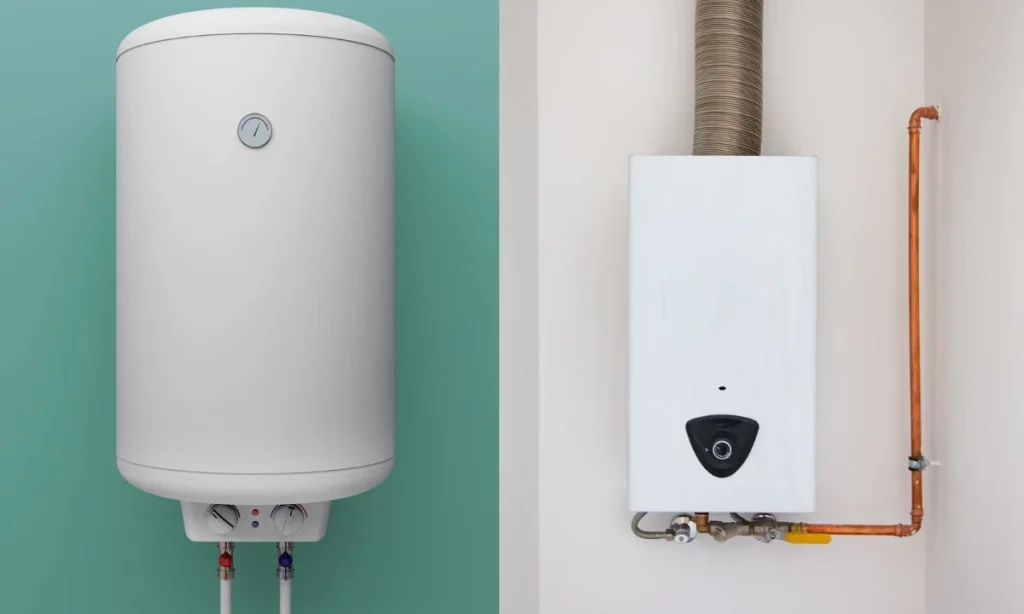When it comes to selecting a water heater for your home in Alhambra, California, one of the primary decisions you’ll face is whether to opt for a gas or electric model. Both options have their advantages and considerations, and making the right choice depends on several factors, including energy efficiency, upfront costs, availability, and personal preferences. In this article, The Pro Plumbing will let you explore the key differences between gas and electric water heaters in Alhambra, discussing their pros and cons, so you can make an informed decision for your specific needs.
Energy Efficiency
Energy efficiency plays a crucial role in selecting a water heater. Electric water heaters tend to be more energy-efficient compared to their gas counterparts. This is because electric heaters convert nearly all of their energy into heat, whereas gas heaters may lose some heat during the combustion process. Electric models also offer improved insulation and better heat retention, reducing standby heat loss. However, it’s important to note that gas prices are typically lower than electricity rates in Alhambra, so even though gas water heaters may have lower efficiency ratings, they might still be more cost-effective in the long run.

Upfront Costs
Considering the upfront costs is essential when choosing between gas and electric water heaters. Generally, gas water heaters have lower purchase and installation costs compared to electric models. Gas units are relatively simpler in design and require less expensive components, making them a more affordable option initially. However, it’s worth noting that electric water heaters tend to have a longer lifespan, which may offset the higher initial investment. Additionally, if your home doesn’t have an existing gas line, the cost of installing one may significantly impact the overall expense of a gas water heater.
Availability and Accessibility
The availability and accessibility of gas and electricity in your area also influence your decision. Alhambra typically has a reliable supply of natural gas, making gas water heaters a readily available option for most homeowners. However, if your property doesn’t have a gas line connection, the cost and feasibility of installing one must be considered. On the other hand, electricity is widely accessible in Alhambra, and electric water heaters can be installed without any additional infrastructure requirements. It’s essential to assess the existing infrastructure in your home and determine which option aligns with your property’s setup.
Performance and Recovery Rate
The performance and recovery rate of a water heater impact its ability to provide hot water consistently and quickly. Gas water heaters typically have a faster recovery rate compared to electric models. This means that gas heaters can heat a new tank of water more quickly, ensuring a continuous supply of hot water for multiple showers or appliances simultaneously. Electric water heaters might struggle to keep up with high-demand scenarios, especially if they have a smaller tank capacity. However, advancements in electric heater technology have improved their recovery rates, narrowing the performance gap between gas and electric options.
Maintenance and Lifespan
Maintenance requirements and lifespan are crucial considerations when selecting a water heater. Gas water heaters generally have more complex components, such as burners and gas valves, which may require periodic maintenance. Electric models, on the other hand, have simpler mechanisms and often require less maintenance. Additionally, electric heaters have a longer average lifespan compared to gas units. While gas water heaters typically last around 10-12 years, electric heaters can last up to 15-20 years. Considering the maintenance demands and expected lifespan can help you choose a water heater that offers convenience and durability.
Safety Considerations
Safety is a paramount concern when it comes to any appliance, including water heaters. Gas water heaters have potential safety risks associated with gas leaks and combustion processes. It’s crucial to have proper ventilation and regular inspections to prevent gas-related accidents. On the other hand, electric water heaters eliminate the risk of gas leaks but still require proper wiring and electrical connections. Ensuring electrical safety measures, such as using dedicated circuits and avoiding overloading, is essential. Additionally, both gas and electric water heaters should be installed by professionals to ensure compliance with safety codes and standards.
Environmental Impact
The environmental impact of your water heater choice should also be considered. Gas water heaters produce greenhouse gas emissions during combustion, contributing to climate change. Electric water heaters, although more energy-efficient, rely on the electricity grid, which may have varying levels of renewable energy sources. To reduce the environmental footprint, you can opt for a gas water heater with higher efficiency ratings or consider an electric model paired with solar panels to harness renewable energy. Evaluating the long-term sustainability of your water heater choice can align with your environmental goals.
Space and Installation Requirements
The space available in your home and the installation requirements are important factors to consider. Gas water heaters typically require more space due to venting and combustion considerations. They also need proper clearance for air circulation and maintenance access. On the other hand, electric water heaters have a more compact design and can be installed in smaller spaces. If you have limited space or specific installation constraints, electric water heaters might be a more practical choice, as they offer more flexibility in terms of placement options.
Noise Levels
The noise generated by a water heater can be a consideration, particularly if it is installed in a living area or near bedrooms. Gas water heaters tend to produce some noise during operation due to the combustion process and the movement of gas through the system. Electric water heaters, on the other hand, are generally quieter, as they do not have a combustion component. If minimizing noise is a priority for you, an electric water heater might be a better option for maintaining a peaceful living environment.
Availability of Rebates and Incentives
It’s worth exploring whether there are any available rebates or incentives for choosing a particular type of water heater. In some cases, utility companies or local government programs offer financial incentives to encourage energy-efficient choices. These incentives can vary depending on the region and can apply to both gas and electric water heaters. Researching the potential rebates or tax credits available in Alhambra can provide additional cost savings and further influence your decision-making process. Be sure to check with local energy efficiency programs or consult with professionals to explore any available incentives.

Here are some questions which may help you further:
Is it better to replace a water heater with gas or electric?
- The choice between gas and electric for a water heater replacement depends on factors such as availability, energy efficiency, upfront costs, and personal preferences.
What is the downside of an electric water heater?
- One downside of electric water heaters is that they may struggle to keep up with high-demand scenarios and can take longer to recover and provide hot water compared to gas models.
Is it cheaper to have a gas or electric water heater?
- Gas water heaters generally have lower operating costs in areas with lower gas prices, while electric water heaters may have higher energy efficiency but higher electricity rates, so the overall cost depends on local utility rates and usage patterns.
Do electric hot water heaters last longer than gas hot water heaters?
- On average, electric hot water heaters tend to have a longer lifespan of around 15-20 years, while gas hot water heaters typically last around 10-12 years, but individual performance can vary based on maintenance and usage.
Conclusion
Choosing between gas and electric water heaters in Alhambra involves weighing several factors, such as energy efficiency, upfront costs, availability, performance, maintenance, safety, and environmental impact. While gas water heaters offer lower upfront costs and faster recovery rates, electric models are more energy-efficient and have longer lifespans. Consider your specific needs, budget, existing infrastructure, and environmental concerns to make an informed decision. Consulting with professionals can also provide valuable insights and help you select the optimal water heater that meets your requirements while considering local regulations and safety guidelines.

